Satabhisha Sen Sharma Banerjee in Kolkata
Celebrated actress Suchitra Sen passed away in the early hours of Friday, January 17.
An iconic figure of Bengali cinema, we take a look at how she became a legend.
Suchitra Sen is not just a yesteryear heroine, who produced numerous box office hits. She is a cult figure, an integral part of Bengali fantasy.
Her affair with Hindi films was a short one. But whatever the role, she performed it with an intensity that kept audiences glued to their seats. It is this magnetism that has made her a legend.
Together with Uttam Kumar, she gave us Bengali movies that speak to our hearts even today. We still hum the songs they lip synched years ago, and living room sofas still get filled up when a Suchitra Sen movie is telecast on television.
.
The beginning
Image: Suchitra SenThe journey from Rama Dasgupta to Suchitra Sen was not a smooth one.
Married to Dibanath Sen, an industrialist, she started her acting career with Shesh Kothay in 1952. The film never released.
Her second film Saat Number Quadi (1953) bombed at the box office.
Bhagabaan Sri Krishna Chaitanya, which released in the same year, was a moderate success.
It was Sharey Chuattor, a romantic comedy, that gave the young actress her first hit. Audiences loved and welcomed the pairing of Uttam Kumar and Suchitra Sen that would catapult them to stardom.
A superhit jodi, Uttam Kumar and Suchitra Sen
Image: Uttam Kumar and Suchitra Sen in AgniparikshaAgnipariksha ushered in the Uttam-Suchitra era in the Bengali film industry. Directed by Agradoot, this film went on to become a super-hit with every man trying to look like Uttam Kumar and every girl copying the looks and style of Suchitra Sen.
Suchitra immortalised the songs Gaane Mor Kon Indradhanu and Ke Tumi Amare Dako.
The movies they acted in became milestones in Bengali film history. This was the era of middle class conservatism and society did not allow free mixing of boys and girls. Yet Suchitra and Uttam enacted a passion unseen in Bengali films.
Who can forget the passionate Tumi Je Amar in Harano Sur or a bubbly Rina Brown singing Ei Poth Jodi Na Sesh Hoy in Saptapadi?
In fact, this bike song in Saptapadi has become a symbol of romantic love for all Bengalis. Sitting behind the hero, Sen dared to embrace him with such passion that the audience wondered if it was a reel or real life romance they were watching.
Breaking the mould
Image: Suchitra SenThe romance continued in Sapmochan, Shilpi, Sabar Uparey, Indran, Pothe Holo Deri Chaoa-paoa and Chandranath and they hit box office gold.
Suchitra Sen’s combination of elegance and oomph became a talking point in the Bengali community.
So great was her popularity that the Uttam-Suchitra pairing had to be rechristened Suchitra-Uttam -- it was her name that led the cast upon her insistence.
She was able to accomplish this by sheer dedication, discipline and hard-work.
Then, at the peak of her career, she attempted to break out of the mould of the romantic heroine. She chose films with women as protagonists, such as Dwip Jwele Jai that released in 1959.
Her bravura performance as Radha in the film won her rave reviews.
In Smriti Tuku Thak (1960) she played the dual roles of Sobha and Utpala.
A short affair with Bollywood
Image: Suchitra Sen and Dilip Kumar in DevdasIn 1963, Uttar Falguni released. Sen gave a memorable performance in the dual mother-daughter role of Pannabai, a courtesan, and Suparna, a lawyer.
Uttar Falguni won the National Film Award for Best Feature Film in Bengali at the 11th National Film Awards.
Suchitra Sen played author-backed roles in Hospital, and Sandhya Deeper Sikha.
Saat Paake Bandha in 1963 was another milestone in her career. She won the Best Actress award at the Moscow Film Festival for it. She was the first Bengali actress to win an international award.
Sen made a foray into the Hindi film industry as Paro in Devdas in 1955. The film made Rs 1,00,00,000 in 1955.
But the affair with Bollywood was short-lived. In 1957, she did Musafir with Dilip Kumar.
Mamta, the Hindi version of Uttar Falguni was released in 1966.
Then came Aandhi, inspired from Indira Gandhi’s life. It was banned for political reasons but Sen got a Filmfare award nomination for Best Actress for the film.
Awards and honours
Image: Suchitra SenThe honours have come thick and fast. In 1972, Suchitra Sen won the Padma Shree. In 2012, she was awarded the Banga Bibhushan for Lifetime Achievement in film acting.
She was a contender for the Dadasaheb Phalke award in 2005 but she did not make the trip to Delhi to collect the award.
Her greatness does not lie in the number of awards she has won. She worked within the limitations of a small regional film industry but managed to establish a bond with her audience that remains even today.
She retired from films in 1978 and lived a secluded life thereafter, fiercely guarding her privacy. She never made a public appearance again.

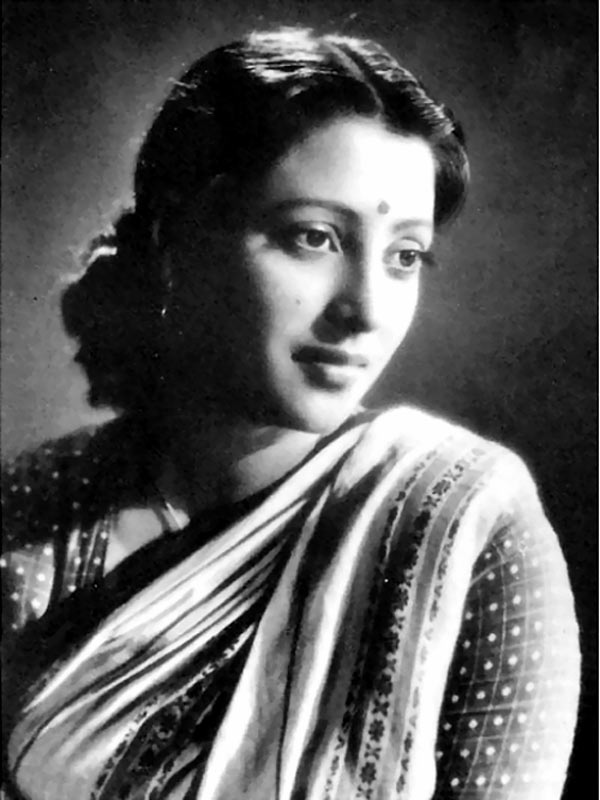
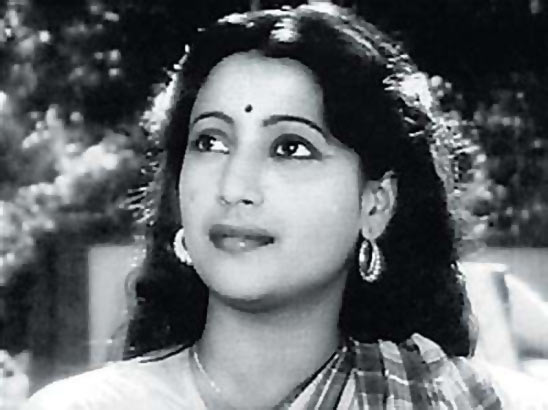
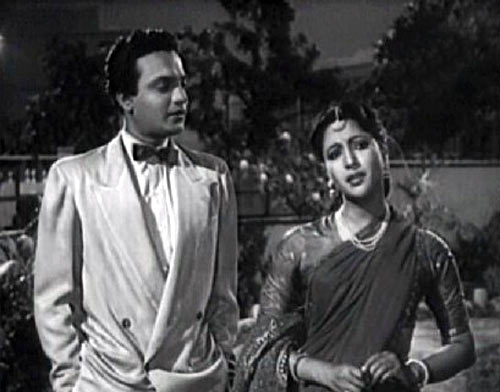
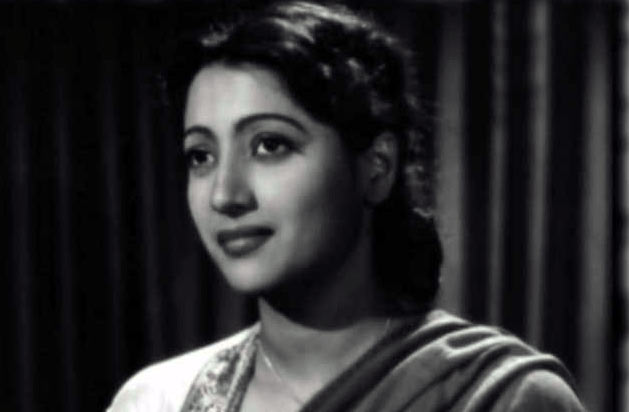
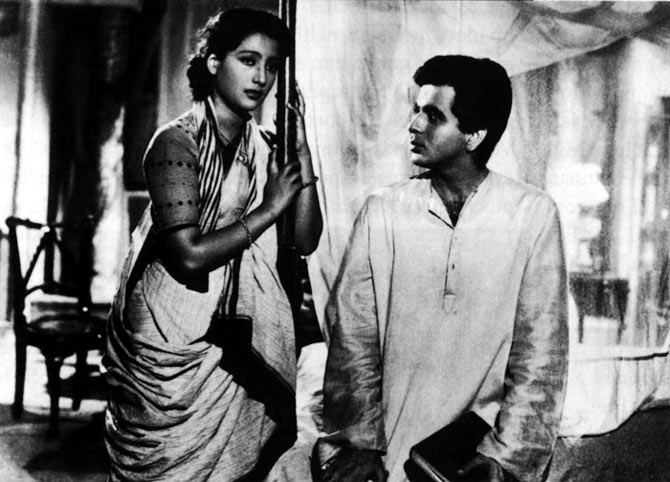
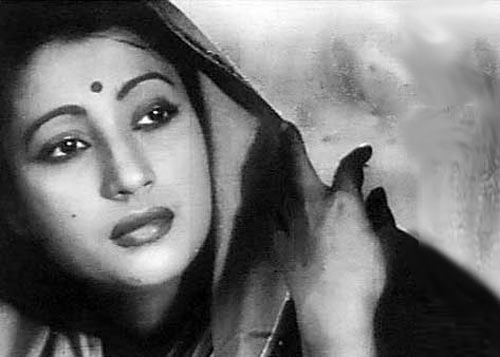
Comment
article